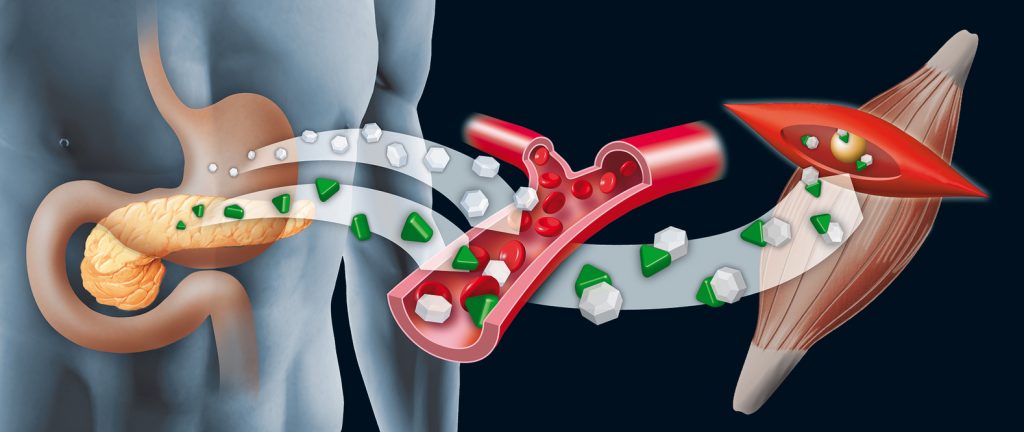Key Takeaways
-
Hormonal imbalance can affect your liposuction results.
-
Hormonal changes, especially those related to insulin, cortisol, estrogen, and testosterone, can change how well the body maintains liposuction results.
-
To regulate hormonal balance post-liposuction, ramp up some practical lifestyle changes and revamp your diet. You may also want to consider medical interventions to stabilize your hormone levels.
-
Regular check-ins with healthcare providers also help to deal with any hormonal problems as they come up. This proactive approach ensures that the effects of liposuction are maximized and maintained.
-
You want to incorporate a diet and exercise program to help you manage your hormone levels, which can help with long-term liposuction success.
-
Individualizing strategies according to one’s hormonal makeup can significantly improve and prolong results from liposuction.
Hormones play a big factor in how liposuction works. Imbalances can screw with outcomes.
Insulin, cortisol, and estrogen regulate weight and recovery after surgery. Liposuction won’t address hormonal problems. This is why weight can be restored due to hormonal changes.
Managing hormones after liposuction helps you stay on track. Now I focus on balancing these key hormones to see better results.
Simple lifestyle changes can help a lot. Eating right, exercising, and reducing stress helps. I share things that have worked for me and for others.
They make liposuction more effective when you understand hormones.
Let’s go ahead and dig into this important topic.
What Are Hormonal Imbalances
Causes of Hormonal Imbalances
Hormonal imbalances occur when there is a disruption in hormone levels, and they impact many body functions.
Think of hormones as messengers that instruct your body what to do. When these messages get mixed up, it creates all kinds of problems.
Common hormones that may be off balance are estrogen, testosterone, and insulin.
For example, too little or too much estrogen impacts weight and mood. Imbalances of testosterone can lead to fatigue or mood swings, while issues with insulin may result in weight gain.
Lifestyle plays a big part. Poor diet and lack of exercise are two big culprits. Stress is another factor — when stressed, the body releases cortisol, which can mess with other hormones.
Medical conditions like PCOS (Polycystic Ovary Syndrome) and thyroid disorders also disrupt hormones.
As we age, particularly women who are going through that menopausal stage, the hormone levels shift naturally and create more of those imbalances.
Environmental factors, such as exposing yourself to endocrine disruptors — chemicals from plastics and personal care products — can also affect hormones.
This is why we need to have an understanding of hormonal health, especially when you’re thinking about cosmetic procedures like liposuction.
Liposuction can reshape your body and your weight, and sometimes it leads to or exposes hidden hormonal issues.
Symptoms of Hormonal Imbalances
Physical symptoms are pretty common. You may gain or lose weight, feel fatigued all the time, or experience appetite changes.
Hormonal imbalances can wreak havoc on your mood, resulting in swings or even anxiety.
For example, women may experience irregular menstrual cycles, a strong indicator hormones need testing.
Recognizing these symptoms is key. Timely intervention and treatment can make all the difference.
After liposuction, some experience changes in body shape and weight due to hormonal shifts.
Many people seeking cosmetic surgery, 3–15% of them, may have Body Dysmorphic Disorder (BDD), and that’s tricky. This obsession with body look often makes recovery more difficult.
Liposuction can reduce fasting plasma insulin, 2-h plasma glucose, insulin resistance, and plasma leptin.
Ghrelin levels drop after surgery, similar to gastric bypass results.
These changes could cause hormone changes and body shape even years later.
Managing these imbalances includes exercise, diet, and lifestyle changes along with any necessary medical treatment.
Exercise promotes recovery and regulates hormones.
It’s a partnership between you, your body, and perhaps your doctor.
How Hormones Affect Liposuction
Impact on Fat Distribution
Hormonal changes can cause fat to accumulate or decrease in certain areas following liposuction.
Estrogen and testosterone, the power players here, are baseline, busy deciding where fat plops.
For example, estrogen directs fat more to the hips and thighs, while testosterone takes it to the belly region.
When hormones swing out of balance, they disrupt fat distribution. This imbalance can cause fat to come back to places you thought were under control.
Watching hormonal levels can significantly help in managing fat distribution. This is to guarantee that the body shape stays as desired post-surgery.
With hormonal stability, people can avoid fat returning in unwanted areas.
Specific Hormones Involved
Role of Insulin in Fat Storage
Insulin is the main hormone that promotes glucose metabolism and regulates blood glucose levels.
When we eat, insulin helps cells absorb glucose, which is used for energy.
If there’s too much insulin floating around because of a diet high in carbs or sugars, our bodies start storing excess energy as fat, especially visceral fat.
The insulin levels are significantly reduced from week 1 to week 12 post-liposuction, p = .049.
This drop in calories is amazing for weight management!
This means liposuction can improve insulin sensitivity, making it easier to keep off the weight.
After surgery, it’s important to monitor what you eat. Choosing foods that keep insulin levels steady can really help.
Cortisol and Stress Response
Cortisol, often referred to as the stress hormone, is released under pressure. Cortisol helps us respond to threats well.
Having too much cortisol can mess with our metabolism and encourage our bodies to store fat, particularly around the stomach. High cortisol levels also increase hunger and cravings, which can make it harder to maintain healthy eating habits.
Chronic stress sends hormones out of whack and can mess with liposuction results.
The key is managing stress in order to keep hormones in check and aid recovery. This could be mindfulness practices or even just daily exercise. It could also mean making sure you have a solid support system.

Thyroid Hormones and Metabolism
Thyroid hormones are essentially the body’s energy managers, as they’re responsible for metabolic processes and how we burn calories.
While liposuction may not directly affect thyroid function, it can impact hormone levels. Monitoring thyroid health after surgery is crucial to prevent setbacks in recovery and weight management.
There’s also a distinct connection between thyroid function and our ability to maintain weight after liposuction. Monitoring these hormones can help make sure things are functioning well.
Regular check-ups with your healthcare provider ensure that your thyroid functions properly. These appointments help keep you on track after the procedure.
Managing Hormonal Balance Post-Liposuction
1. Adopt a Balanced Diet
When controlling hormonal balance after liposuction, embracing a balanced diet is essential.
Making room for nutrient-dense foods is crucial. These foods support hormone production and overall health, ensuring the body receives necessary vitamins and minerals.
Add healthy fats such as avocados, almonds, and olive oil to keep your blood sugar steady. Pair them with lean proteins — like chicken and fish — for even greater effect.
Complex carbohydrates, which are in whole grains, are also essential. Limit processed foods and sugars. Hormonal imbalances and weight gain can also result from them.
A meal plan that focuses on portion control and balanced nutrition preserves liposuction results.
Your changes in waist circumference directly affect your insulin and leptin levels. This correlation shows how vital diet is at controlling these hormones.
2. Engage in Regular Exercise
Exercise isn’t just about losing weight; it regulates hormones too.
Combining aerobic and strength training increases metabolic fitness.
This consistent workout routine can regulate hormones and significantly improve mood.
For example, yoga or Pilates are great because they help you de-stress and balance your hormones.
Track progress to maintain motivation and make any needed changes to workouts.
Research shows that insulin levels drop significantly from week 1 to week 12 post-liposuction.
This finding shows how exercise could be an important factor in hormone regulation.
3. Monitor Stress Levels
Since stress can severely disrupt hormonal balance, stress management techniques are key.
Practices such as meditation, deep breathing, or journaling can help mitigate the impact of stress on hormones.
Recognizing these stress triggers and building healthy coping mechanisms is essential.
It encourages participation in relaxing activities, which promotes emotional well-being and hormonal stability.
Regular assessment of one’s personal stress levels helps keep them in check.
Studies indicate that ghrelin levels go down, similar to what happens after gastric-bypass surgery.
This suggests that stress plays a massive role in hormone regulation.
4. Seek Medical Guidance
It’s important to talk with healthcare providers about tips to support hormonal health after liposuction.
Talk about any concerns you have regarding hormonal imbalances or symptoms you’ve experienced after surgery.
Looking into potential treatments or therapies for specific hormonal problems can offer great relief.
You’ll find that staying up-to-date on the latest research and developments in hormonal health is worth its weight in gold.
About 3-15% of those seeking cosmetic surgery have Body Dysmorphic Disorder. This underscores the urgent need for in-depth medical advice.
Regular check-ups to assess hormonal levels allow for necessary adjustments, ensuring optimal post-surgery outcomes.
Strategies for Optimizing Liposuction Results
Lifestyle Modifications for Stability
If you’re going to see the stable and lasting results after liposuction, lifestyle changes are important, he said.
Because I’m an all-in-one kind of guy, I model these habits of balance, exercise, and stress management.
Eating well is not just about cutting calories. It’s so important to feed your body the nutrients that help balance your hormones.
Adding foods high in omega-3s helps combat inflammation as well. This is key because inflammation can throw a wrench in hormonal functions.
Exercise is another major piece. In addition to helping maintain weight, it also helps support glucose uptake and insulin sensitivity.
Such information is very important. Research indicates that exercise increases muscle contraction without the need for insulin, and this could be particularly helpful following body contouring procedures.
The key is building healthy habits that support hormone balance over time.
Gaining insight into how lifestyle decisions affect your hormones and your experience with liposuction can empower you to make your own decision.
Get your friends and family involved to create a supportive environment.
This will allow you to develop healthy habits and a healthy body image. This support system is essential to help you maintain the results of your procedure.
It keeps you committed and focused on your health goals.
Importance of Follow-up Consultations
Routine follow-up consultations are part and parcel of maximizing liposuction. These check-ins are a way to check on recovery and hormone levels post-op.
Talk with your healthcare provider if you notice changes in your weight or body composition. They can provide personalized advice and adjust your post-operative plan accordingly.
Mohammed et al. Found significant decreases in fasting plasma insulin and insulin resistance 90 days after surgery. This finding speaks to the importance of tracking these metrics.
These follow-ups also give us a forum to discuss any worries about hormones being out of balance.
If you notice changes related to hormones — such as mood shifts or unexpected weight gain — consult your doctor.
This leads to discussions that provide timely help that makes you feel better.
Healthcare providers play a key role in achieving and maintaining great liposuction results. They can quickly repair and manage any imbalances that occur.
Benefits of Personalized Treatment Plans
An individualized treatment plan can go a long way towards improving liposuction results—particularly when hormones are involved.
Plans are personalized to target specific hormonal imbalances and lifestyle factors.
If you have a history of insulin resistance, a personalized approach can help. This could mean making targeted dietary changes and engaging in personalized exercise routines to boost your insulin sensitivity, much like the improvements observed in the study by Rizzo et al.
Collaboration between patients and healthcare providers is crucial for these plans to be successful.
Collaborate closely with your physicians. That way, you can continually assess and update your treatment plan based on how you’re doing.
This collaboration creates a space where changes are made proactively, resulting in optimized outcomes.
Constant assessment keeps you involved and allows you to seize command of the journey your health takes.
This empowerment translates into sustained results and a higher level of satisfaction with your liposuction procedure.
Conclusion
Understanding hormones plays a big role in liposuction success. Hormones such as cortisol and insulin can interfere with your body’s healing process. They can even alter how you appear post-surgery.
Better results through maintaining hormones in check. Routine checkups with your doctor help catch any problems early. Have a balanced diet, manage your stress, and get some exercise. These easy steps help.
Liposuction isn’t simply about getting rid of fat; it’s about a healthier you. This lets you take control of your hormonal health for the best outcome. Be informed, be healthy, and you will reap the benefits.
Wondering how to strike that balance? Browse our guides. Get the scoop on how hormones work and how to manage them. Immerse yourself in a healthier life without hesitation.
Let’s ensure that your liposuction journey is smooth and successful. It’s time to take control and get the results you desire.
Frequently Asked Questions
How do hormonal imbalances affect liposuction results?
Hormonal imbalances can cause uneven fat distribution and impact the body’s ability to heal. This can lead to unsatisfactory liposuction results and longer recovery periods.
Which hormones most impact liposuction outcomes?
Cortisol, insulin, and estrogen are three crucial hormones. Imbalances in these can affect fat deposits and skin elasticity and thus impact the results obtainable by liposuction.
Can hormonal imbalances cause weight gain post-liposuction?
Yes, hormonal imbalances do result in weight gain post-liposuction. They may make the body store fat differently, which can work against the results of the procedure.
How can one manage hormonal balance after liposuction?
Post-liposuction, eat a healthy diet, exercise, and manage stress. Consider speaking to a healthcare provider about hormone testing, too.
Are there specific strategies to optimize liposuction results?
If you want to get the best results from liposuction, try to keep your weight stable. Eat healthy and visit a doctor regularly for advice on managing your hormone levels.
Is it possible to undergo liposuction with existing hormonal imbalances?
It’s not advisable. Tackling hormonal issues before surgery leads to better results and fewer complications. See a healthcare provider for a thorough assessment.
Can lifestyle changes improve hormonal balance for better liposuction results?
Yes, a healthy diet, exercise, and stress management can help balance hormones. These changes can facilitate improved liposuction results and general health.





